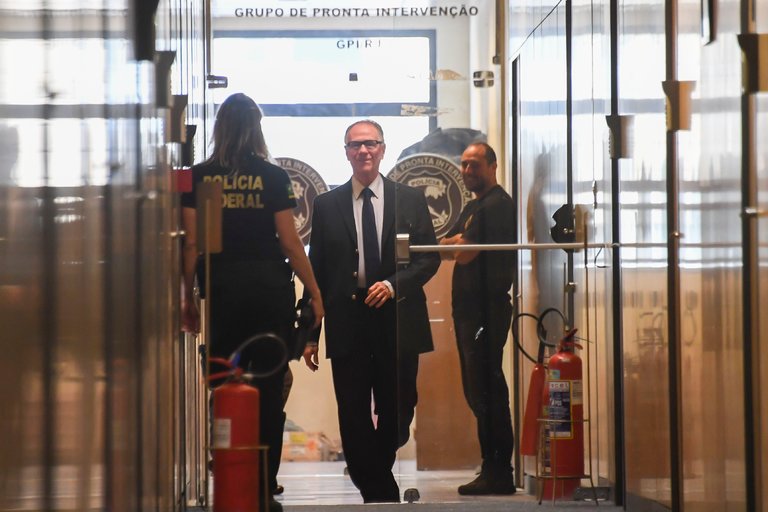This material belongs to: NY Times.
A former sports official in Brazil said he told the International Olympic Committee about corruption among organizers of the 2016 Rio Olympics several years ago — long before law enforcement officers raided the home of Brazil’s top Olympic official this week during a continuing investigation into corruption and bribery.
The police found the equivalent of $155,000 in cash at the home of Carlos Nuzman, one of the most influential members of the I.O.C. and a crucial architect of Rio de Janeiro’s successful bid to bring the Olympics to South America for the first time. Prosecutors in Brazil and France have said that victory, in which Rio defeated bids from Madrid and Chicago for the Summer Games, was tainted by a scheme to bribe voters.
The former official, Eric Maleson, who is now based in Boston, founded and led Brazil’s ice sports federation for more than a decade until his ouster in 2013. He said he had written several emails and letters to the I.O.C., warning of corruption at the Brazilian Olympic body. He shared some of the emails with The New York Times.
Mr. Maleson, an outspoken critic of Mr. Nuzman, made accusations about Olympic projects and asked the I.O.C. why it had not prevented Mr. Nuzman, 75, from occupying the dual roles of leader of the Rio 2016 organizing committee and chief of Brazil’s national Olympic committee.
“This a clear conflict of interests, and the I.O.C. should never have allowed this to happen,” Mr. Maleson wrote in a Sept. 6, 2014, email to the I.O.C.’s president, Thomas Bach, and the organization’s judicial body. He contacted the I.O.C. in 2012 to accuse Mr. Nuzman of corruption and election fraud.
No charges have been filed against Mr. Nuzman, and he has emphatically denied all accusations of wrongdoing.
Mr. Maleson, who piloted Brazil’s first bobsled team at the 2002 Winter Olympics in Salt Lake City, said he had spoken with the authorities in Brazil and France.
“I started speaking to the I.O.C. in 2011,” Mr. Maleson said in a telephone interview. “Every year, we had scandals with the organizing committee and the Brazilian Olympic committee.”
Prosecutors’ accusations against Rio’s bid and Mr. Nuzman are the latest graft claims involving the 2016 Games. Corruption inquiries that stretch far beyond the Olympics have led to the detaining of senior political and business leaders and the downfall of the former Brazilian president, Dilma Rousseff. Sérgio Cabral, who was governor of Rio when it won its bid, has been sentenced to prison for 14 years after being convicted of receiving kickbacks from construction firms in return for awarding them lucrative contracts, including some linked to the Olympics.
In a statement, the I.O.C. confirmed that Mr. Maleson had contacted it and said he had been told to work “directly with the N.O.C. in order to resolve any potential dispute,” a reference to Brazil’s national Olympic committee. In other words, the I.O.C. told Mr. Maleson to address his grievances about Mr. Nuzman with the organization run by Mr. Nuzman.
The police said this week that Mr. Nuzman, an honorary member of the International Olympic Committee, had played a central role in Rio’s reported vote-buying efforts. They said he had connected a wealthy Brazilian businessman based in Miami, Arthur Soares, with Lamine Diack, who was in charge of the world governing body of track and field. One of Mr. Soares’s companies then paid $2 million to Mr. Diack through a company owned by his son Papa Massata Diack, the authorities said. The elder Diack was arrested in France in 2015 after he was accused of covering up failed doping tests in return for cash. Authorities in France have said that his son would be arrested if he traveled to France.
A spokesman for the I.O.C., which will meet next week in Lima, Peru, said the organization did not have “the capacity to make any criminal investigation. Therefore, if anyone brings to our attention alleged criminal activities, he/she will be advised to contact the relevant law enforcement authorities.”
Two years before the 2016 Summer Olympics in Rio, Brazil hosted the soccer World Cup, spending billions of dollars on projects linked to the two events. Corruption investigators are looking into at least half of the 12 stadiums used for the World Cup. José Maria Marin, the head of Brazil’s soccer federation at the time of the event, faces trial in the United States on charges including money laundering and wire fraud. His predecessor and successor, who remain in Brazil, have also been indicted in the United States case, which exposed widespread corruption in global soccer.
Mr. Maleson said he thought investigators would uncover more evidence of wrongdoing as their work continues.
“I explained and gave them information about what I know in order for them to investigate,” he said, declining to reveal precise details. “This is just the beginning — there’s more things they already know.”


